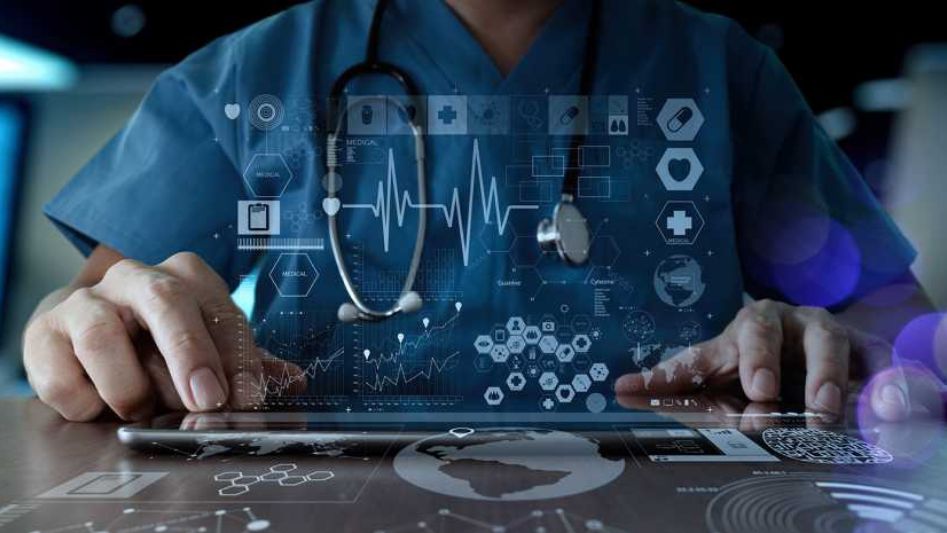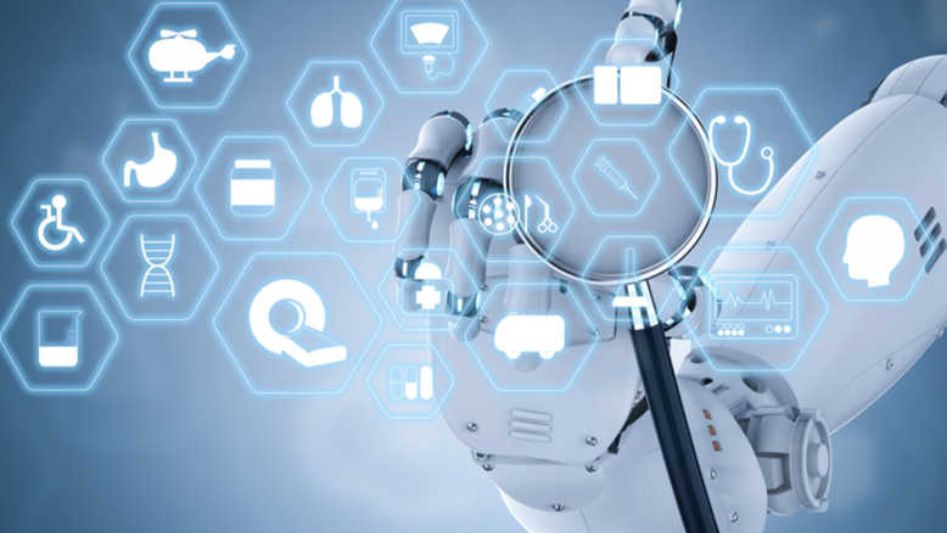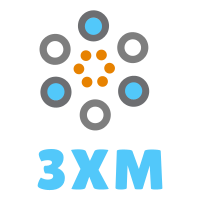Artificial intelligence (AI) is transforming the healthcare industry by enabling faster, more accurate diagnoses, personalized treatment plans, and improved patient outcomes. Deep learning, a subset of AI that involves training neural networks to recognize patterns in data, is particularly promising for healthcare applications. Here are some ways in which deep learning is revolutionizing healthcare.
Table of Contents:
We invite you to read: “THE ETHICS OF AI: BALANCING INNOVATION WITH RESPONSIBILITY”

Medical Imaging
Deep learning algorithms can be trained to analyze medical images such as X-rays, CT scans, and MRI scans. By detecting patterns and anomalies in these images, deep learning algorithms can help radiologists to make faster and more accurate diagnoses. For example, a deep learning algorithm can detect signs of breast cancer in mammograms with a higher accuracy rate than human radiologists.
Predictive Analytics
Deep learning algorithms can also be used for predictive analytics, which involves analyzing patient data to identify trends and predict future health outcomes. For example, a deep learning algorithm can analyze patient data to predict the likelihood of a patient developing a particular disease or condition. This can help healthcare providers to intervene early and prevent the development of more serious health issues.
Personalized Treatment Plans
Deep learning algorithms can also be used to develop personalized treatment plans for individual patients. By analyzing patient data such as medical history, genetic information, and lifestyle factors, deep learning algorithms can identify the most effective treatments for a particular patient. This can lead to better patient outcomes and reduced healthcare costs.
We invite you to read: “THE FUTURE OF ARTIFICIAL INTELLIGENCE: A LOOK AT ADVANCEMENTS IN MACHINE LEARNING”

Drug Discovery
Deep learning algorithms can also be used for drug discovery, which involves identifying new drugs or repurposing existing drugs to treat specific conditions. By analyzing vast amounts of data on drug compounds and their interactions with the human body, deep learning algorithms can identify potential drug candidates with a higher level of accuracy than traditional methods.
Virtual Health Assistants
Virtual health assistants powered by deep learning algorithms can provide patients with personalized healthcare advice and guidance. These assistants can analyze patient data, answer questions about medications and treatments, and provide reminders to take medication or attend appointments. This can help patients to manage their health more effectively and reduce the burden on healthcare providers.
Conclusion
Deep learning is revolutionizing healthcare by enabling faster, more accurate diagnoses, personalized treatment plans, and improved patient outcomes. By analyzing vast amounts of data, deep learning algorithms can identify patterns and trends that would be impossible for humans to detect. With the potential to improve patient outcomes and reduce healthcare costs, deep learning is set to transform the healthcare industry in the coming years.
We invite you to read: “THE IMPACT OF AI ON SOCIETY”

FAQ
What are virtual health assistants?
Virtual health assistants are powered by deep learning algorithms and provide patients with personalized healthcare advice and guidance.
Is deep learning replacing human healthcare providers?
No, deep learning is not replacing human healthcare providers. Instead, it is enhancing their capabilities and enabling them to provide better care to patients.
What are the benefits of using deep learning in healthcare?
The benefits of using deep learning in healthcare include improved patient outcomes, faster and more accurate diagnoses, reduced healthcare costs, and personalized treatment plans.
What are some challenges associated with using deep learning in healthcare?
Some challenges associated with using deep learning in healthcare include data privacy concerns, the need for high-quality data, and the potential for bias in algorithm development.
You May Also Like
- HOW AI IS TRANSFORMING THE BUSINESS LANDSCAPE
- HOW CAN AI SUPPORT DIVERSITY, EQUITY, AND INCLUSION?
- THE EVOLUTION OF ARTIFICIAL INTELLIGENCE: PAST, PRESENT & FUTURE
- 5 BASIC DATA SCIENCE PROJECTS IN PYTHON FOR BEGINNERS
- WHAT IS DEEP LEARNING AND ITS APPLICATIONS?
HELPFUL LINKS
- How AI is Revolutionizing Healthcare: Transforming Diagnostics, Treatment, and Administration
- How AI And Machine Learning Will Impact The Future Of Healthcare
- Types of Deep Learning & Their Uses in Healthcare
- What Are the Benefits for Healthcare Providers and Patient Data?
- How Machine Learning in Healthcare Works and Why it Matters


Recent Comments